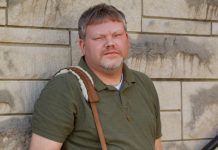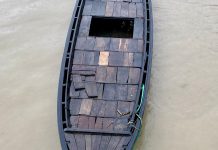COLLEGE DORMS
Helena slept for her first night in her college dormitory at Humber College. She never thought she would return to college, ten years after she dropped out of nursing school. Actually, she was kicked out of the nursing program, even though she had a high academic standing. She had even been accepted for a nursing practitioner position at medical school, towards which she had aspired and studied hard. She never thought these many years later she would stay in her own room in a college residence. She also never believed she would end up returning to college to study the art and science of funerals, funeral director classes, funeral home management, and mortuary science—how to embalm or cremate a dead human body, according to regulations and health codes. She never thought, after she was kicked out of nursing school years ago, she’d be dealing with such practical funerary issues as blood and bodily fluid from corpses contaminated with viruses like HIV and the different types of hepatitis. But here she was in her residence room, with a view of the massive college parking lot and the campus building complex, including the giant refurbished space arm for the space shuttle.
Helena decided she felt so warm she slipped out of her sports bra and panties and wanted to sleep in bed naked. She accidentally broke the blinds, though, trying to adjust the view of the parking lot and the college campus. She originally thought she’d visit a hardware store at the shopping mall near the residence and pick up the fixture herself, since she should be able to repair the blinds herself. But she decided she needed to forget the fact she had spent the last decade of her life working as a carpenter in the southern BC interior. She’d explain to the residential assistant, the maintenance person, or the front desk in the residence, she had accidentally broken the blind, certainly not any damage done on purpose, or she’d simply put in a work order with maintenance.
PALLBEARER
After the father and son duo died, Helena received a call from Debbie. Debbie and Helena were classmates from elementary school, middle school, and high school. When they were kids, Helena received the distinct impression she didn’t like her, and they didn’t get along: that was how she remembered their childhood years. She thought Debbie was a snob and a bully, with a lilywhite family in the decent and respectable funeral home business; she thought she was trash and a hillbilly, a wild mountain girl who liked to smoke pot and give blowjobs for marijuana cigarettes and beat up rich white boys.
Now Debbie the funeral director told her she needed her as a pallbearer for the simultaneous funeral of Angus and Duncan MacLeod. Originally, Helena thought she was trying to lay a trap for her. She even wondered if she had been molested by the father and son duo like another classmate, originally from Newfoundland. Nobody wanted to function as a pallbearer, Debbie the funeral director said, for the father and the son, the lottery winners, but the father had bought prepaid funerals with the funeral home, so she felt obliged to provide full service.
Helena said she didn’t see how their prepaid funerals were her problem. And prepaid funerals? Really!
“You’ve never heard of a prepaid funeral? Anyway, you’re tall and you’ll look good in a black suit,” Debbie said. “Help me, please.”
Helena sighed, wishing she hadn’t answered the telephone call, but she spoke with her because she felt vulnerable, guilty, and she was ready to confess. She didn’t expect her to offer her a job. “Yeah, I guess I can think about it,” Helena said.
“Will you wear a kilt?”
“A kilt?”
“Yeah, as in a Scottish kilt, with formal evening wear and a sporran hanging from your waist for decoration. The MacLeods were Scottish and went to the Robbie Burns dinner every January.”
“I will not wear a kilt.”
Debbie pleaded with her again, telling her, before he won the lottery, Duncan Macleod was a butcher, who made the haggis for the Burns Night dinner every year. His son was also an apprentice butcher at a meat shop on Baker Street.
“I will not wear a kilt.”
Debbie mentioned the father had even donated money to the annual Robbie Burns dinner after they won the lottery.
“So, ask the people from the Burns night dinner to come wear a kilt. I will not wear a kilt.”
The invitation to work at the funeral was the start of their beautiful relationship. Afterwards, Debbie joked, they became just another lesbian couple in the mountain valley and resort town.
MOUNTAIN TOWN
Helena hadn’t heard from Debbie for over a decade since their high school graduation. Debbie was the daughter of the funeral home director. After her own father died, she became the Valhalla Mountain Funeral Home director. (Her own father was cremated unceremoniously, without a funeral—his ashes scattered in the waters around the Big Orange Bridge, near his favorite fishing spot on Kootenay Lake. There, as a teenager, he caught the largest Kokanee salmon on record.) In making the phone call—and Helena had wondered where Debbie had gotten her phone number—she seemed to have forgotten that she did not like Helena. Helena remembered Debbie cracked jokes about her, telling their classmates she was taller than the largest coffin her father had in stock in his funeral home. Debbie insisted Helena would make the perfect wife for Andre the Giant. She continued to make fun of her in class, joking about her above average height, her angular jawline, her high cheekbones, and long nose.
Still, she seemed genuine and earnest in seeking her out to help troubleshoot at her funeral home. Helena decided to try to help her with the MacLeods’ funerals. Debbie offered Helena a wardrobe of brand-new clothes for the funerals of a few dead guys. She told her she received plenty of high-end clothes for the deceased, more than the departed ever needed, since they could only be dressed in a single set of their finest formal garb for their own funerals. Debbie often ended up donating their clothes. She gave Helena a pair of shoes from another dead guy. She said Helena looked beautiful, tall, and striking. Debbie measured Helena’s height at six feet two in the size twelve high heel men’s shoes she gave her.
“You’re making me too tall. Don’t you have flat sole shoes?” Helena asked.
“These are a dead guy’s shoes,” Debbie said. “He was short and stocky, but he had big feet—the same way some guys have large penises.”
Helena looked down at how she towered over Debbie in her own dark gloomy outfit, remembering well how she had introduced their grade twelve high school English class to the term funereal.
“Beggers can’t be choosers,” Debbie concluded, “and you have to choose.” Still, she said Helena looked attractive in a men’s suit. Again, Debbie pleaded with her to wear a kilt, reassuring her she’d look even better.
In the end, Helena helped carry the coffins for the funeral of the father and son, which was attended by a few police officers, one of whom wore a kilt, and a loud bagpiper, in a pleated kilt, long stockings, black shoes, and plaid and Scottish regalia. Then Debbie announced she wanted to make Helena a part of her family business, her funeral home.
FATHER AND SON
They talked about how the father and son had died, which was supposed to be a big secret.
“You mean they were murdered?” Helena demanded.
“Shush,” Debbie said. “The police don’t want anyone to know.”
“That’s insane.”
“It’s a small town,” Debbie replied.
“Why would anyone want to kill them?” Helena asked.
Dressed in a rubbery apron and gloves, Debbie prepared to embalm their bodies. “I heard rumors—that’s all,” Debbie said. “I even heard one of the police officers was a suspect—in the robbery, after the original home invasion.”
“A police officer a suspect?”
“Because it was a double homicide the big boys became involved. By the big boys I mean the feds, the Mounties who at least have a bit of experience in murder investigations. Anyway, a detective believes one of the locals arrived on the scene, had a look, sniffed around for money, and then left.”
“What the heck! How do you know?”
“I’ve got my sources, a high-ranking source, in the local department.”
“That’s crazy.”
“The local police here—not the feds—are a different breed. They like back country skiing, hunting with bows, and shooting high powered rifles at mountain goats, cougars, coyote, and elk. They do all kinds of crazy and kinky things. They die from avalanches when they are downhill skiing in the back woods where it’s dangerous.”
Debbie donned her safety glasses to protect her eyes from the embalming fluid and chemicals. She said father and son may have been killed during a home invasion, victims of burglars seeking cash and valuables after the duo won the lottery. She said because of the nature of the injuries the father and son sustained they should have been cremated. Their faces and heads needed at least partial reconstruction, which she wouldn’t allow Helena to watch, because not only was it sensitive to inexperienced eyes but was more half-assed and involved the use of more Krazy Glue than Debbie liked to admit.
Duncan MacLeod had come into the funeral parlor after he won the lottery and bought a prepaid funeral, at which he wanted a bagpiper, a choir member singing Auld Lang Syne, and pallbearers in Scottish kilts.
After Helena acted as a pallbearer at their funerals, even helping to lift and load their coffins into the rear of the hearse, Debbie said she wanted her to work for her in the funeral home. Debbie realized lately Helena hadn’t been making much money in the carpentry business, especially after she became embroiled in a fight with a handsy supervisor at a worksite, a housing development, on the site where businessmen and local politicians had wanted a box store, to which Debbie and her father had been in vocal opposition.
CLAW HAMMER AND WORK GLOVES
Helena remembered back to that fateful day: After she emerged from the house and quickly strode down the street, she noticed a police cruiser. As shocked as she felt, Helena still managed to walk past as if nothing had happened. The local police officer did not notice her, either. He was too preoccupied writing notes or poetry or love letters into his little black notebook. Then, when she arrived home, Helena realized, despite her precautions, she had forgotten her claw hammer and work gloves, stained with dried cement and fresh splattered blood and brain tissue, upon which she had printed her name in a heavy black marker so nobody would take them. Helena gave an agonized scream and swore at the top of her lungs.
Hours later, Helena walked alongside the path near the McMansion of Duncan and Angus MacLeod. She could see no police motor vehicles near the roadway or the intersection. As soon as she entered, she heard rustling from someone as they slipped through the front door. Helena, startled, then wondered, for some perverse reason, if the apparition had been a police officer.
Helena never caught a glimpse of the man, but, if it was the police officer, why would he be skulking about the place like a burglar? Why would someone be in the house so soon after she made her bloody exit? And, since she had last been in the house, the place looked ransacked. She realized after the mayhem she instigated, someone had broken in, possibly seeking cash. They had sloppily gone through cupboards, closets, dressers, drawers. She noticed locked drawers had been broken into and someone had attempted to pry open a strong box with a crowbar. She realized she needed to be even more careful and vigilant.
Helena found the bloody hammer, and much to her relief, the gloves near the bed for the son, where, in her excitement and fear, she had allowed them to drop, as she wiped blood splattered from her face with the hem of a t-shirt she wore beneath her black denim jacket. She drove back to the middle of the Big Orange bridge nights later, waiting until the bridge was abandoned and empty, and tossed the evidence into Kootenay Lake.
FERRET AND CHOCOLATE BARS
If Helena told you she enjoyed the experience, would you believe her, or would you be outraged? If she told you she derived perverse satisfaction from hitting them with the claw hammer, would you believe her? If she told you that as soon as she realized it was wrong, she felt guilty, would you believe her? But she knew it was wrong at the time. At least afterwards, she didn’t feel like a poor trash dirtbag her mother never wanted. She didn’t feel like a demon child her mother bore because her boyfriend, a Kootenay stoner, a pot cultivator, refused to pay for her abortion in Spokane, Washington.
Then you might ask why did she let Duncan MacLeod and Angus MacLeod do it to her? The son showed her his ferret and allowed her to pet and play with the hyper, fascinating creature. The father gave her leftover Halloween candy.
CULVERT TUNNEL
Years later, Helena did renovations for Angus MacLeod and Duncan MacLeod. But she realized they did not recognize her from her schooldays in the mountainside town, nestled in a valley around Kootenay Lake, in the Selkirk Mountains. The father and son had won the lottery jackpot. Then they abandoned the houses they had owned on the mountainside beneath the culvert tunnel.
The red house and the purple cabin were located near the culvert, the underground pedestrian tunnel that crossed beneath the highway, where the son touched her and took pictures. The underground pedestrian tunnel, the culvert, connected the upper parts of the town, built on the mountainside, to those older lower parts of town, including downtown, built in the valley and around the lakeshore of Kootenay Lake. After they won the lottery jackpot and shared the proceeds, the father and son moved from these rundown, dilapidated houses, and adjacent cabins on the mountainside, alongside the highway, the car dealerships, and the gasworks, and the fast-food restaurant.
The MacLeods bought the house of a wealthy retiree who had left the town after his ex-wife ran him down. She severely injured him with their Cadillac, after she chased him down with the luxury car. She drove over him, alongside the parkway outside their house, a McMansion on the shore of Kootenay Lake. Incidentally, that couple had both recently returned from a ski resort, where they won medals in the competition for their age group. Helena felt amazed father or son did not recognize her, though.
POLAROID PICTURES
They had taken her into the house and cabin they had owned near the gasworks when she was a child. After they offered her leftover Halloween treats, Angus MacLeod took pictures of her and had his way with her. The son photographed her with a Polaroid instant camera. Later, what amazed her, when she attended high school: she discovered he wasn’t the only local child whose innocence they had robbed.
Apparently, the photographs, the snapshots, the Polaroid instant photos from that sordid time had been stored in panels in the walls, the larger house in which the father had lived, and in the adjacent cabin, in which the grown-up son, who learned the butchering and meat cutting trade from his father, had lived. Another carpenter, who said he had quickly replaced the drywall, while the son never left the room the whole time, told her about the cache of instant photos.
She remembered one of her high school classmates, a Newfoundlander, whose parents had migrated to the West Coast of British Columbia. Her family then settled in the southern interior, in the Kootenays, to work in the sawmills and then ended up growing pot. She described the houses as Newfie houses, because they were painted in bright bold colors, the house red, the cabin purple, like the houses nestled on the coastal villages around Newfoundland.
Anyway, Helena remembered the experiences she had had with the men, when they offered her the leftover Halloween candy and comic books. Angus MacLeod showed her the ferret and invited her inside the red house and the purple cabin. He also touched her inside the culvert tunnel, decorated with graffiti and spray paint, beneath the highway, and took more Polaroid instant photos of her there. She did not understand the nature of the experience at the time.
After that experience, the discomfort, and the bad dreams she experienced afterwards, caused her to forever avoid that route to the municipal public library, the Dairy Queen, or any of the stores and restaurants downtown.
RENOVATIONS
Years later, they hired Helena for renovations to the house, which were needed, after the wife of the original owner had caused a fire in the living room in some final dramatic act of marital discord. The repairs that original owner made were half-assed. Helena ordered the lumber, repaired the floor, the doors, and windows. They paid her cash.
The whole time she worked on their carpentry and renovations they did not recognize her. Then, when they assigned her more renovations and repairs on the house, she realized they still did not know her identity. The house was the largest house she had repaired or renovated. But they had no sturdy and solid doors and the flimsiest of locks, which seemed odd for a house of such value and size. After she completed that round of repairs that afternoon, she went for a burger and fries down at the fast-food restaurant near the solid stone Gasworks building.
She noticed the No Trespassing signs hung outside the properties and houses that they apparently still owned, on the street with the heritage gasworks buildings, along the path near the large culvert tunnel, built into the mountainside, where father and son had first greeted her, lured her with candies, gum, miniature chocolate bars, comic books, and, of course, the ferret.
Now, through the windows of her pickup truck in the chilly winter day, the houses looked abandoned and neglected, boarded up, weathered. She had her burgers, fries, and root beer in a nearby fast-food restaurant. She went through the piles of weekly newspapers she had stacked in her backpack. She read the articles about the elderly father and his son, who lived together, both longhaired and bearded, both of whom looked like hippies, from another era, the sixties, and the lottery jackpot that they had won and shared. She reminded herself they were the same men who had molested her years ago. Then she started to wonder, as she slowly sipped her root beer. She felt the onus was on her to act.
She had forgotten about the pair of odious men. She considered the long, twisted route that carried her from a university graduate with the highest GPA in her graduating class and her second year of nursing in medical school, where she aspired to become a nurse practitioner, a career path she was forced to abandon. Her decision to abandon those efforts, and work in carpentry was forced upon her: it wasn’t as if she had a choice.
HAPHAZARD PLANS
Now she decided she needed to act. Helena drove past the boarded-up house further down the street and noticed the No Trespassing signs stuck to the front. It made no sense to her that these properties, which abutted the mountain side, the trail, and the culvert tunnel through the steep hillside, were abandoned and boarded up. The house and cabin, even in decrepit condition, remained valuable because of the property, which was in short supply in a town like Nelson because of the affluent retirees who were opting to retire in the mountain village enclave.
Helena drove home in her beat and battered pickup truck. She shed her blaze orange durable construction gear and her sturdy pants and jacket. She took her electric clippers and shaved off her long-braided dread locks, which she hadn’t clipped or cut in months and even years. She shaved her head smoothly and touched and rubbed the fuzz on her scalp. Afterwards, she took the dread locks and tossed the woven strands and braids of thick, fuzzy fur into the fire of the woodstove, where her hair hissed and burst into flames, amidst the smoldering, chopped birch. Naked, she removed her piercings, nose rings, tongue piercings, facial piercings, including a cheek, dimple, bridge, anti-eyebrow, and lip piercings. She put on her black jeans, a black T-shirt, a black denim jacket, and black boots. She reverted to the grim, bleak goth style of her teenage years, sans piercings.
She brewed a cup of coffee and drove her pickup truck, which she also used for carpentry work, across town, as she contemplated her dramatic action. She finished the coffee in her spill proof cup as she drove over the Big Orange Bridge and along the scenic mountain roads. Then she felt a craving for more caffeine to fortify, energize, and motivate herself. She needed to get pumped, so she drove to the twenty-four-hour convenience store and ordered another coffee. This conflicted with her need to maintain a low profile. Stopping at the convenience store for an extra dose of caffeine and a sugar rush and cream did not count as keeping a low profile.
A Mountie chatted with a local police officer near the coffee percolator. Helena went to the magazine stands and browsed at paperback books as the officers stood in conversation around their vehicles parked near the gas pumps outside before they prowled away through the light snow. Then she bought an extra-large coffee from the 7-11 and sat in the parking lot briefly contemplating her next move. She had her utility belt in the tool crib of her pickup truck. She donned the belt and tools before she buttoned her oversized shirt to conceal the tools beneath her shirt and denim jacket.
THE RED BUNGALOW AND THE PURPLE CABIN
Then Helena drove downtown. She decided she would park her truck behind her favorite sports bar, in downtown Nelson, as if she had left her pickup truck parked behind the bar after a night of drinking. She decided to walk to the abandoned houses, on the opposite side of the street, since she expected there could be a security guard or closed-circuit cameras protecting the car dealership motor vehicles further down the street.
Helena concealed her face and eyes with her hoodie, a scarf, a toque, and even sunglasses. As she walked along the downtown street and through the trail through the park and alongside the car lots, in the dark and chilly night, she encountered nobody. She walked to the back of the house, which faced the bush of the mountainside.
Helena broke into the back door with her lock picking tools. She entered the house after she used a hacksaw blade to saw away the board that held the back door closed. Then she entered the red house, a bungalow, knocking on the walls, until she heard the telltale sounds and signs. She remembered again the days after she was kicked out of nursing school and faced criminal charges. After she was given a suspended sentence and an unconditional discharge, she was lost and needed money.
Helena started cultivating and selling pot and even started breaking into houses and garages where she knew the Kootenay smugglers and growers and dealers hid their stashes of marijuana. The cash she earned was enough to help put her through night school courses for woodworking, fine furniture making and carpentry.
STASH
Helena rapped gently at the walls. But there was nothing audible, at least she could not hear or detect the telltale sound she sought. Then she sat in a wooden chair in the dark in the messy kitchen. In the chilly dark of the gloomy and creepy abandoned house interior, she thought long and hard. She remembered a bedroom with a remarkable view of the lake and the mountainside. She had even seen the moon rise above the mountains and lake during one of her encounters when she was in the seventh grade. Back then her mother didn’t believe in stranger danger. Helena’s mother, the dirtbag, even allowed her to wander the town like she was one of the boys. She remembered a smaller enclosed space which had a bedroom with a window that provided a view of the lake and mountains.
Helena decided to move onto the cabin, the purple shotgun shack, next door where the son had lived. She realized with a sense of conviction this indeed was the house, the purple cabin, whose paint had chipped, worn, and faded. This was indeed the place around twenty years ago where she had an encounter.
She broke into the door, which was at the rear, without any difficulty. She remembered her classmates from her high school years gossiped about the father and son. She remembered she had not been the only victim. She had heard a rumor that the Polaroid instant photos were stashed in the house somewhere, in a wall, beneath drywall, after another local carpenter had done repairs.
The bedroom area in the small rundown bungalow possessed the mystical view that she remembered through the window. She tapped at the sides of the wall and then she heard the telltale sign, the sound, which indicated something lined the panels, something was stored in the wall. She decided she did not need to exercise caution or care. She punched a hole in the wall and hammered away the drywall. There she found the collection of Polaroid snapshots, the instant photos, wrapped in plastic BC liquor store bags. She briefly perused the photos and realized she could not look further. She started muttering and swearing.
When Helena saw the flashing red lights and flickering blue lights through the rear window of the purple cabin, she realized the police had arrived.
BROKEN WINDOW
Filled with panic and fear, Helena felt the urgent need to act. She heard the police shouting warnings, including warnings that they had drawn their weapons, as they entered the door. She realized she needed to escape quickly. She tucked the cache of Polaroid photos into her jean jacket pocket. She took the hammer, broke through the windows, and went crashing through the window and rolled down the mountain hillside into the ravine. The police officer tried to chase after her, but the bushes were too dark, and the embankment was too steep. She hiked along the banks of the creek until she scrambled up another embankment at the roadside a kilometer downstream.
Since Helena knew the trails around these bushes, and this part of town, she walked along a trail through parkland to the Big Orange Bridge and then the road to the trailer park and her mobile home. She put the photos into her dresser and then examined them again in the light and cringed. Meanwhile, she hoped she hadn’t in haste recklessly left behind any evidence.
RENOVATIONS
The following week, when Helena tried to return to the worksite, the brand-new house of the father and son, they said they no longer required her services. She felt surprised they hired another tradesperson, already working there, another carpenter from town she recognized. They said she hadn’t completed the shingling and siding for the garage before their deadline. They paid her off and thanked her for the work she had done, leaving her confused and suspicious, with a handful of cash she absently stuffed into her fanny pack. The previous week they had hired her to shingle the roof on their shed next and even shook her hand.
Mystified, she drove back to the trailer park and her mobile home in her construction pickup truck, equipped with a ladder and power tools. After she counted the filthy money, she marveled that they paid her in cash twice the amount upon which they originally agreed. Had they nurtured suspicions and finally recognized her?
Then she read in the local weekly newspaper that the father and son had donated money to the library and the community radio station, whose coverage of community events and local weather they appreciated. They also donated haggis and bottles of Scotch Whiskey to the annual Robbie Burns dinner held at The Eagle building in Nelson. She did not understand why these Kootenay lifers would risk putting themselves in the public eye.
SISTER OF VENGEANCE
Helena decided to visit their new house that evening. Having donned her goth black outfit, her black jeans, her black jean jacket, black boots, and black T-shirt, she walked across town. After she emerged from the huge culvert tunnel, she plunged into the bushes. She changed into disposable coveralls, a work outfit, which she wouldn’t miss and kept for installing insulation into the walls and ceilings of buildings. She hiked the bush trail, which she had known since childhood growing up in the town, to the house. Looking like a ghostly apparition, she went into the house, which she knew intimately from her renovations.
The door was unlocked. She carried her claw hammer in her left hand. She stepped along a hallway to the bedroom of the father, gently entered through the open door. With her headlamp she found the large white bearded and balding Duncan MacLeod, who snored and even wore a scuffed baseball cap in his sleep. She raised the hammer and muttered she was the sister of vengeance—sent to deliver divine retribution. She raised the hammer high above her head and then struck him hard with the steel head on the forehead. He wheezed, gasped, and emitted bloody bubbly salvia. Then she pounded his head repeatedly with the claw hammer until it was a gory mess. She struck him until his jerking and twitching motions and labored breathing stopped. The blood dripped and bubbled around his lips. He wheezed and went completely silent. His face and front were splattered with blood and brain tissue. Then she scattered Polaroid snapshots around his body, where they stuck to the thick sticky dark blood. The aged faded instant photos from two decades ago soaked in blood.
Still, she moved downstairs to the bedroom where the son slept. As redhaired and bushy bearded Angus MacLeod slept softly and quietly, she struck him in the head with the claw hammer. He screamed at first and even flailed blindly with his arms, but then she struck him repeatedly until his face, too, was a bloody pulp. She scattered the remainder of the sepia toned Polaroid photographs over his blood-spattered body, so they soaked in the blood and adhered to his body.
Feeling panic, Helena breathed hard, like she was asthmatic. She crept quickly out of the house. She felt the odd sensation she may have forgotten something, but she felt too drained and exhausted to act on those instincts. Even her body and joints and muscles ached, and she continued to struggle with her shortness of breath. Still, she felt oddly elated and even euphoric, as if she had accomplished a challenge she set for herself years ago. But her relief quickly turned to dismay. After she emerged from the house and quickly strode down the street, she noticed a police cruiser. Shocked as she felt, she still managed to walk past as if nothing had happened. The local police officer did not notice her. He was too preoccupied with something in his lap. Was he handwriting notes into his little black notebook?
BIG ORANGE BRIDGE
Then Helena carelessly walked across town to the Big Orange Bridge. When she reached the center of the bridge, abandoned at this ungodly night hour, shrouded in fog, she took her folded and bundled coveralls, her makeshift hazmat suit, which still had bits of blood, brain, and silver and red hair clinging to the fabric, from her backpack. She dropped the soiled work wear over the guardrail of the bridge into Kootenay Lake. She had the odd sensation that something was missing, that she had forgotten something. More so, she felt relief that the dastardly deed was done. She walked the remainder of the distance across the Big Orange Bridge. Then she walked along the mountainside road and the lakeshore to the trailer park where she lived in her mobile home.
At home, as she started to worry about getting caught, she carefully wrapped and stored the remaining pictures of herself the son had taken. These instant photos compiled the only hard evidence and insurance she might possess if the police ever came knocking at her door, suspecting she was the perpetrator.
Then, when she arrived home, Helena realized, despite her precautions, she had forgotten her work gloves, stained with blood, upon which she had printed her name in a heavy black marker. She had not only forgotten her bloody gloves, but she had also forgotten her work tool and her weapon, her stained and bloody claw hammer. She gave an agonized scream and swore at the top of her lungs.
About the Author
Born and raised in Sioux Lookout, Ontario, John Tavares is the son of Portuguese immigrants from Sao Miguel, Azores. Having graduated from arts and science at Humber College and journalism at Centennial College, he more recently earned a Specialized Honors BA in English Literature from York University. His short fiction has been published in a variety of print and online journals, magazines, and anthologies, in the US, Canada, and internationally. His passions include journalism, literature, economics, photography, writing, and coffee, and he enjoys hiking and cycling.












